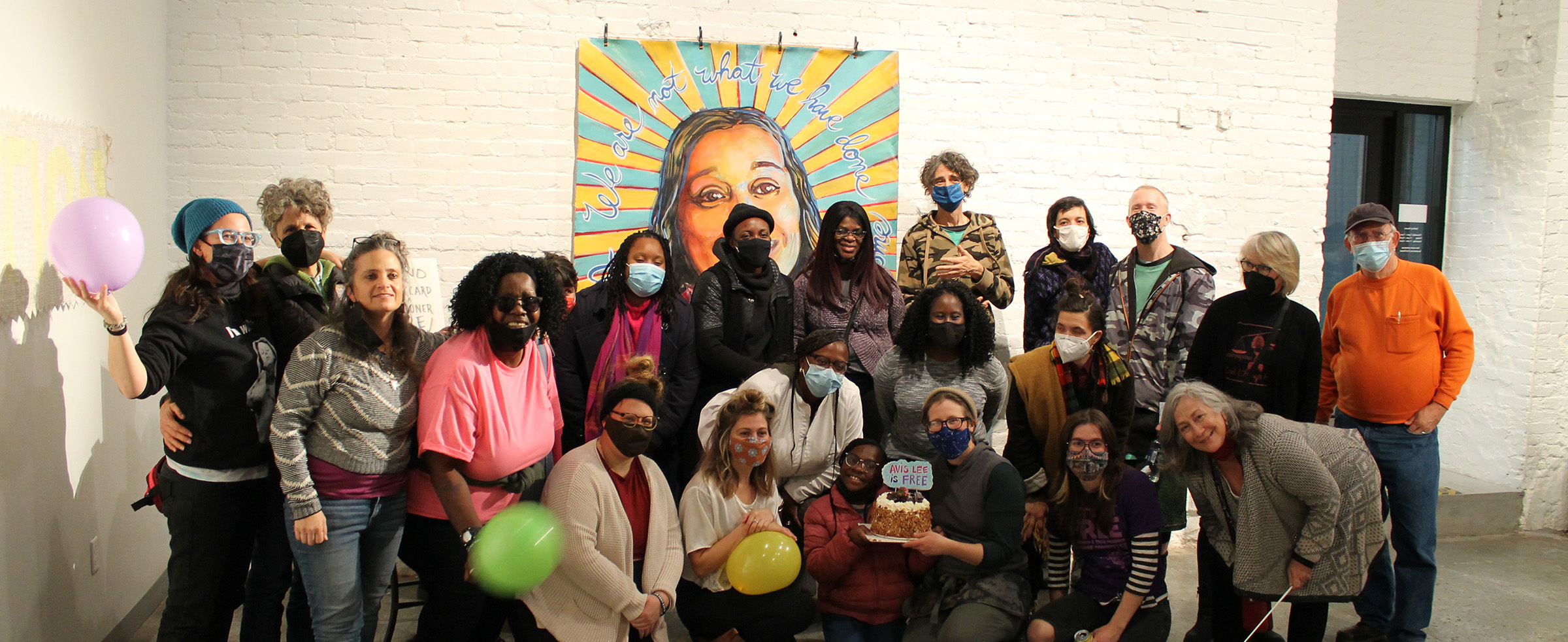Driving policy change for social good

WHEN THE PITTSBURGH FOUNDATION’S director of public policy and advocacy, Khalif Ali, first toured the Trade Institute of Pittsburgh in 2016, he remembers thinking it was “perfect.” Since its founding in 2009, the Institute had helped hundreds of men and women — the clear majority of whom had been incarcerated — land living-wage jobs. Its renowned 10-week training program not only taught construction and masonry skills, but also provided counselors, caseworkers and other supports for students. Its graduates took jobs paying $15 an hour or more, transforming families and saving taxpayers more than $10 million as recidivism rates plummeted.
The Institute was so successful, in fact, that it “almost seemed too perfect,” says Ali, jokingly.
But there was a catch: Many of the higher-paying, benefit-providing jobs that Institute students train for also require a driver’s license. And in Pennsylvania, people who’ve been incarcerated can lose their licenses even for nonviolent, nondriving offenses. Steve Shelton, the Institute’s founder and executive director, estimates that nearly 70 percent of his students come in with suspended licenses — an issue that affects their earning potential and threatens their self-sufficiency. Getting those licenses restored, he told Ali, could make the difference “between just scraping by and making a solid living.”
The story stuck with Ali and his Foundation colleagues. “Here were individuals transitioning out of the criminal justice system who wanted to change the circumstances of their lives,” he says. “We found it very disconcerting that people who’ve made that sort of commitment would be denied an opportunity to do better for themselves and their families.” Subsequent research and discussions led the Foundation to publicly support the legislative package that would repeal the state’s automatic driver’s license suspension for many nonvehicular offenses. The Foundation, along with a coalition of nonprofit organizations and orchestrated one-on-one meetings with legislators, supported a targeted social media campaign, and participated in a press conference following a public hearing on the issue. The reform bill attracted rare bipartisan support and passed in this year’s final legislative session, allowing Gov. Tom Wolf to sign it into law.

Khalif Ali, the Foundation’s director of public policy and advocacy, is one of less than a dozen people to hold that position within a community foundation.
Suspension reform is just one of a wide range of policy issues that the Foundation has taken on as part of 100 Percent Pittsburgh, the four-year-old organizing principle designed to create new opportunities for residents left out of the revitalized economy. Often, creating those opportunities means awarding grants. But as Ali says, “the Foundation is about more than giving money — it’s also about supporting the work of our grantees. And sometimes that means overcoming policy barriers that prevent them from achieving their goals.”
Over the past few years, the Foundation’s advocacy work has included protecting human-services funding during the state’s annual budget battles; making the case through research for an increase in Pennsylvania’s minimum wage (which, at just $7.25 per hour, is lower than that of every neighboring state); championing paid sick days and paid family leave; and supporting affordable housing.
Though taking such stances may seem controversial in a politically charged environment, “the Foundation tries to comment from a community perspective, rather than one that’s left or right, or conservative or liberal,” says Maxwell King, the Foundation’s president and CEO. “When the Foundation gets involved in something, it has to be consistent with our grant-making approach. The two main questions to ask are: Will this action make our funding more effective in the community? And, will it make life better for the people of Pittsburgh?”
The Foundation is about more than giving money — it’s also about supporting the work of our grantees. And sometimes that means overcoming policy barriers that prevent them from achieving their goals.
--KHALIF ALI, Director of Public Policy and Advocacy
When the answers are “yes,” advocacy can be a powerful way for the Foundation to exercise moral leadership and expend its reputational capital.
In recent years, the Foundation took on the issue of gerrymandering as part of its program agenda to encourage more vibrant democracy in the region. That work included commissioning extensive research, convening a range of public interest groups, and eventually submitting a friend of the court brief in a lawsuit filed by civic and good-government organizations. The state Supreme Court ruled in favor of the plaintiffs and used university-based experts to draw a new map of the voting district.

Construction worker Marcus Kelly is a success story of the Pittsburgh Trade Institute, where the Foundation learned of the hardships caused by driver’s license suspensions for nondriving offenses.
Later, in the aftermath of President Trump’s comments about certain African countries during a meeting on immigration policy — comments that were widely condemned across the political spectrum as racist — the Pittsburgh Post-Gazette defended the remarks in an editorial published on the national Martin Luther King holiday. In response, King joined Grant Oliphant, president of The Heinz Endowments, in writing a counter-editorial that went viral and led to other protests. “Community foundations really only have value to the extent that they exercise community leadership,” says Oliphant of the decision to partner with the Foundation. “That is their most important role.”
King agrees. Whether the Foundation is dispatching Ali to Harrisburg or calling on lawmakers to protect crucial human-services funding, “at the end of the day, summoning some courage and advocating for the people who need us most — that’s really our job,” he says. “That’s why we go out into neighborhoods and try to understand the needs of the people our grantees serve. Ultimately, they’re the people we serve, too.”
Original story appeared in Report to the Community 2017-18


